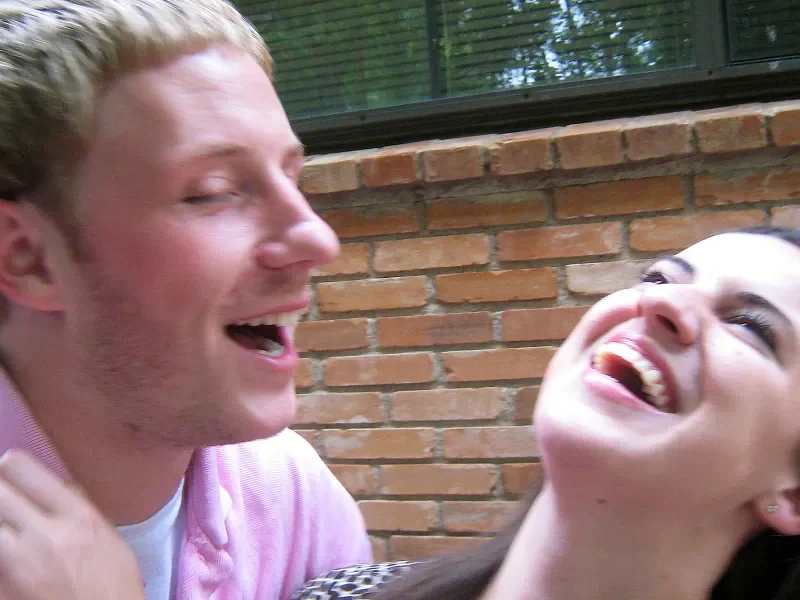When Lena took a new high-paying cleaning job, she thought it was just another client on her growing company’s list until she saw the name. Twenty years after her aunt stole everything and abandoned her, fate had placed Lena back at her doorstep. Would she finally get justice?
When I was three, my parents died in a car crash on their way home from a weekend trip.
All they owned—the house, the savings, and the insurance—was meant for me.
My aunt, Diane, stepped in like some self-appointed guardian angel. She wore pearls to the funeral, smiled through her tears, and told everyone she’d “take care of me.” And for a little while, she did.
She moved into my parents’ house, redecorated the living room, and started referring to herself as “the only family I had left.”
I barely remember that time. Six months later, she sold the house, took the money, and left me at a foster home. Then she was gone… like she never existed.
I was too young to grasp betrayal, but I understood being alone. I bounced from one foster home to another, asking myself why this was my life.
By 16, I was cleaning houses after school. By 18, offices at night.
And at 23, I had my own cleaning business called PureSpace Services. While working as a cleaner during my teens, I’d learned enough to set up my own company. I had six employees, two vans, and a reputation for perfection.
Most mornings started the same: coffee cooling too fast, the hum of vacuum trucks leaving the lot, and the soft chatter of my team as they loaded supplies. I could tell who’d packed which caddy just by the scent of the polish.
Every house we cleaned carried a story, and every glimmer of glass or sweep of dust felt like a quiet triumph over everything I’d lost.
I still remember the day I signed my first client contract. My hands shook so much that I smudged the ink.
People see my smile and think I’ve always been fine. They don’t see the girl who fought her way out of the life she never chose.
I hadn’t thought of Diane for years, not until one normal Tuesday morning.
I was in my small office, sipping lukewarm coffee, scrolling through new client requests on my tablet, when something caught my eye.
“3,500 sq. ft. property. Once-weekly maintenance. Cash payment. Owner requires discretion.”
At first, it looked like any other luxury home listing, but then I saw the name.
Diane.
I froze for a second, then saw the address. It shared the same ZIP code as my parents’ old home.
No way, I thought. Is this really… Diane?
I sat there, staring at the screen as I vaguely remembered the smell of my old room. I also remembered Diane saying she’d take care of me.
At that point, I should’ve deleted the request. I told myself it wasn’t worth reopening old wounds. But my fingers hovered over the keyboard, and I typed a response without thinking much.
“Accepted. I’ll handle this personally.”
I told myself it wasn’t about revenge. It was about closure. About looking her in the eye as an equal.
Three days later, I pulled up to a grand colonial-style house.
It wasn’t the one my parents had owned, but it was almost the same.
When the front door opened, I saw Diane standing in the doorway wearing a pearl necklace.
“Yes?” she said sharply.
“Good morning, ma’am,” I replied, gripping my cleaning bag a little tighter. “I’m from PureSpace Cleaning.”
She gave me a quick, dismissive once-over. “Well, I hope you’re better than the last girl. She was sloppy and smelled of cheap detergent. Come in.”
The air smelled of lemon polish and cold marble. Every surface gleamed, but somehow the house still felt hollow.
“Start upstairs,” she said crisply. “And don’t touch the jewelry box on my vanity. The last cleaner nearly got fired over that.”
“Yes, ma’am,” I said.
I cleaned in silence, moving through rooms that gleamed like a showroom but felt as lifeless as a mausoleum. Every inch of Diane’s house screamed wealth, but it was the kind of wealth that covered rot.
Halfway through polishing a mirror, her voice carried down the hall.
“Yes, Richard, of course the fundraiser is still on,” she said into the phone, her tone dripping with performative charm.
A pause.
“Well, if we don’t host it, who will? Not everyone can afford to be generous.”
Then came that laugh that made my stomach twist.
Her reflection caught mine in the mirror for a moment. She smiled at herself, smoothing her blouse, then turned away.
The following Friday, I came back. Then the one after that.
Week after week, I returned to the same pristine house. Diane never once said thank you.
But she loved to talk.
Most of it was about herself. She couldn’t stop talking about her charity work, her circle of “important” friends, and her flawless taste.
One afternoon, she poured herself a glass of wine and sat at the vanity, talking as I dusted the picture frames behind her.
“I’m hosting another luncheon,” she said. “The mayor’s wife adores me. She says I have the most refined home in the neighborhood.”
I murmured something polite.
Then, out of nowhere, she said, “I had a niece once. My sister’s child. Poor thing. Her parents died young, and I tried to raise her, but she was impossible. Wild, ungrateful. I did everything for her, and she just… turned on me.”
My hand froze mid-dust.
“You had a niece?” I asked, keeping my tone neutral.
“Had,” she said with a sigh. “Lost track of her years ago. Sometimes, family just… disappoints you.”
I swallowed hard. “That must’ve been difficult.”
“It was,” she said, turning her glass. “Not everyone values sacrifice.”
I smiled tightly and turned away before she could see the look in my eyes.
With each visit after that, I learned something new about her, like how she bragged about her husband’s business contacts, how she talked down to waitstaff, and how she never lifted a finger in her own house.
Everything about her was a performance, but the cracks were starting to show.
The following week, she was preparing for her big charity luncheon. Her husband was out of town, and she was running around the house like a commander before battle.
“Do NOT track dirt near the dining room!” she snapped. “Those rugs cost more than your salary!”
“Yes, ma’am,” I said calmly, even though I wanted to throw the mop at her feet.
“Polish the silver,” she added sharply. “And make sure the crystal sparkles. The mayor’s wife is coming, and I will not tolerate embarrassment.”
“Yes, ma’am.”
When the guests arrived, I stayed in the kitchen, as usual. But voices travel in houses like that.
“My husband and I are blessed,” Diane announced, her tone syrupy sweet. “We’ve worked hard for everything we have.”
I nearly dropped a plate.
Then one of the guests said, “Oh, Diane, you always were lucky. Your sister’s insurance helped you get started, didn’t it?”
The room went silent.
“That was decades ago,” Diane said. “I made something of it.”
My chest tightened. I could feel anger burning behind my ribs, but I kept my face blank as I continued drying dishes.
That night, I couldn’t sleep. I kept seeing her face.
The following week, when her booking came up again, I made a decision.
When I arrived, she greeted me the same way she always did, with a tight smile and a complaint ready on her tongue.
“You’re late,” she said.
“Sorry, ma’am. Got stuck in traffic.”
“Excuses,” she muttered. “Start in the living room. The mayor’s wife is dropping by again.”
“Yes, ma’am,” I said. Then, as I set down my supplies, I added, “By the way, I brought you something.”
Her brows rose, suspicion flickering in her eyes. “For me?”
“Yes, ma’am,” I said evenly. “Just a little surprise. I thought you might appreciate it.”
She sniffed. “We’ll see about that.”
I smiled faintly and turned away, my heart pounding.
Because this time, I wasn’t just there to clean.
I was there to confront the ghost of my past.
***
When Diane came downstairs an hour later, she looked composed as ever. But that changed the moment she saw the coffee table.
A small, framed photograph sat at its center.
It showed a man and woman seated on a picnic blanket with their arms around a smiling three-year-old girl in a yellow sundress.
Diane’s hand trembled as she reached for it. “Where did you get this?”
I straightened slowly, dusting cloth still in my hand. “You tell me.”
“That’s— That’s my niece,” she stammered.
“Your sister’s daughter,” I said quietly. “The one you said was wild and ungrateful.”
She looked up sharply, her breath catching. “You… how did you—?”
“Because that little girl was me.”
The silence that followed was thick enough to choke on. The only sounds were the faint hum of the refrigerator and the ticking of an ornate clock behind her.
Finally, she whispered, “No… no… that can’t be.”
“It can,” I said evenly. “And it is.” I took a step closer, lowering my voice. “You stole everything my parents left me. You sold our house, took their insurance money, and left me in foster care. I remember crying for you to come back. You never did.”
Her eyes filled with tears.
“Why are you here?” she whispered. “What do you want from me?”
I held her gaze. “To see the kind of woman you’ve become. And to show you the kind of woman I’ve become despite you.”
She swallowed hard. “You came here to humiliate me.”
“No,” I said softly. “I came to remind you that you don’t get to rewrite the past.”
Her voice trembled as she stood, clutching the back of the sofa. “You think you’re better than me?”
I smiled faintly. “No. But I learned how to earn everything you tried to steal.”
“You shouldn’t have come here,” she said.
“Maybe not,” I said, picking up my cleaning caddy. “But I’m glad I did.”
As I reached the door, I turned back one last time.
“For what it’s worth,” I said, “I hope one day you learn to clean up your own messes. Not just the ones you can pay people to fix.”
Then I left her sitting there, shaking, with the photo still in her hands.
Two weeks later, I got a call from an unknown number. When I answered, a calm male voice said, “Is this Lena?”
“Yes, who’s calling?”
“This is Richard,” he said. “Diane’s husband.”
My breath hitched. “What do you want?”
His voice wavered slightly. I could hear papers rustling in the background.
He hesitated. “I don’t know what you said to her, but… I found everything. The hidden accounts. The missing insurance funds. The fake charities. She’s… leaving the house. I filed for separation.”
There was a long pause. When he spoke again, his voice cracked with quiet exhaustion.
“I thought I knew her,” he said softly. “She built this image of generosity and grace, and I believed it. Turns out, the foundation was made of lies.”
Then, his tone softened. “I don’t know who you are, but thank you.”
The call ended, and I felt a strange satisfaction for the first time in years.
***
Months passed, and I went on with my life. I didn’t expect to see her again until the morning my receptionist buzzed through the intercom.
“There’s a Mrs. Diane here,” she said. “She doesn’t have an appointment, but she says it’s urgent.”
I almost told her to send her away, but then something stopped me.
“I’ll be there,” I said.
When I stepped into the lobby, Diane was standing there in a plain gray sweater with no pearls or makeup. She looked smaller.
Before she spoke, I noticed how she hesitated at the door, glancing around my modest office as if she didn’t quite know how to exist in an ordinary space. Her hands trembled slightly, the same hands that once waved me away like I was invisible.
Whatever had happened in the months since, it had stripped her of something pride could no longer hide.
“I came to apologize,” she said quietly. “You didn’t deserve what I did. I ruined everything I touched… and for what? Money that never made me happy.”
I couldn’t believe that Diane was here to apologize. This woman, who once stood tall and confident, was now avoiding eye contact.
“After your parents died…” she continued. “Everyone looked at me like I was supposed to fix everything. I didn’t know how. Your mother was always the good one, the loved one. People compared us my whole life. When she was gone, I thought taking what was hers would finally make me feel important. But it never did.”
I folded my arms. “Why are you apologizing now?”
She swallowed. “Because I saw your name in the paper. Your company donated to the foster kids’ shelter downtown. You’re helping the children I never cared about. I couldn’t help one, and you’re helping dozens.”
Her voice broke. “Your mother would be proud.”
For a long moment, I just looked at her. The woman who’d stolen my childhood now stood before me, stripped of everything but her guilt.
“Maybe she would,” I said finally. “But she’d want me to forgive you, too.”
She blinked. “Do you?”
I smiled faintly. “I’m still learning.”
Diane nodded, tears spilling freely now, and quietly walked out.
***
That afternoon, I sat at my desk, staring at the same photo I’d left on her table: my parents and me on that sunlit picnic day.
I traced the glass with my thumb and realized that revenge felt satisfying for a moment, but grace… that lasted.
Because some messes aren’t meant to be cleaned with anger. They’re meant to be washed with forgiveness.


